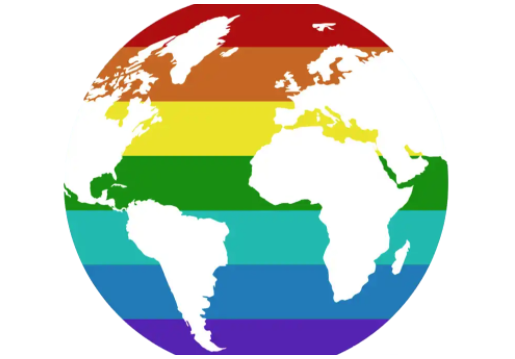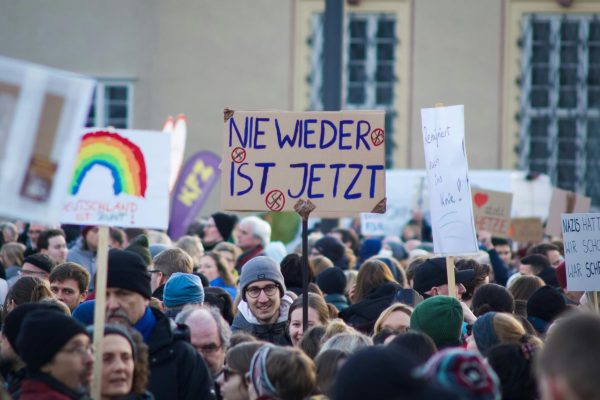Will LGBT+ Rights and Same-Sex Marriage Ever Become a Phenomenon Across the World?

As the world has entered the 21st century, the rise of human rights has been a phenomenon across the world. With the 2020 riots for the change to systemic racism to the riots against dictatorships in authoritarian nations, one starts to question if this will start to cause a domino effect with other human rights issues.
At this point in time, only 29 countries across the world have legalized same-sex marriage, while 72 countries have some sort of criminalization against the LGBT+ community. So, why is there such a lack of support for LGBT+ rights?
If we look into the different cultures and religions around the world, we start to see a pattern of people seeing it as taboo.
Concerning the African continent, the Deutsche Welle found that approximately 93% of sub-Saharan Africans are either Christian (63%) or Muslim (30%), making the continent one of the most religious in the world. Priests of Islam and Christianity are often known for condemning acts of homosexuality. Numerous studies highlight the bias against homosexuality portrayed in the African media, quoting lines from the Bible or the Quran so that the public can easily relate with the media content. However, it wasn’t always like this. In pre-colonial Africa, tribes across the continent were found creating art depicting homosexual relations. Even Mwanga II, the King of Burganda (nowadays Uganda), was found to be gay. This historical record contradicts the modern African society’s perception against homosexuality. Currently, Countries such as Uganda have strict laws against homosexual activity where people can now be given up to life in prison.
The influence Arab and Western nations had during the colonial period changed the perspective on African LGBT+ rights. The generations during the 20th century that grew up under these new ideologies and religions forgot about the past of their LGBT+ history. A certain level of indoctrination has taken place to teach their children that homosexuality is a sin and should be tolerated under these new religions. As these ideas of religious teachings go forward, negative sentiments towards homosexuality might worsen as children start to grow up in an environemnt that condems these actions. African children now grow up believing solely in religious texts and being homophobic because this is all they have ever been taught. If this cycle of indoctrination and religious preaching continues, then LGBT+ rights will never be able to find a way into society.
Distaste for LGBT+ rights doesn’t just appear in Africa, with Asia having a similar situation. The customs in Asia call for people to put an emphasis on family harmony by upholding the family image. Being LGBT+ can be seen as dishonorable and a sign of disrespect to their family members which the majority of these people don’t want to happen. Many Asian countries view “coming out” and LGBT+ rights as a Western idea attempting to be enforced onto them which leaves a bitter taste in the region due to the past colonization of Asia. Quite a few Asian societies could be thought of as tolerant as long as homosexuality remains a topic which never comes up in conversation.
Examples of African and Asian culture lead us into the modern day. One notable thing that has happened in the past few years is the creation of the internet. Social media has been a huge phenomenon across the entire globe with 3.6 billion people involved. This has allowed these secrecies to expand without having people in their personal lives finding out. This might be an adequate solution at the moment, but it cannot distract from the issue of these people still being unable to live comfortably in their real lives.
The combination of the increasing use of the internet and the religious or ideological preaching done by traditions doesn’t allow for LGBT+ rights to find a way into the mainstream. If LGBT+ rights were to try to become a phenomenon across the world, it would need a slot in time where LGBT+ people can make their statement with others listening. However, it is common knowledge that one does not usually listen to news which one does not want to hear. We as humans would rather hear news stories which align with our beliefs rather than ones that go against it. There will never be a time where the entire human race decides to change their perspective at once and listen to those minorities around the world when it doesn’t seem like an issue to many(whether it be ethnic, racial, specific orientation, etc).
The most important task is to get to those that are willing to listen and are willing to change their perspective for the sake of humankind. Then, one could at least increase the number of countries with LGBT+ laws and same sex marriage. However, not everyone will listen to these pleas and simply go about their day being stuck in a closed mind.
LGBT+ rights may never be a proper phenomenon across the world with the importance that customs and religion plays in today’s world. The goal should rather be to get to those which will listen and attempt to create a consensus which satisfies all those involved. This is the only true way that LGBT+ rights and same sex marriage will ever have a chance to find ways into more conservative nations.







Rachel Zeng • May 10, 2022 at
Before Asia and Africa was largely colonized by Europe, they mainly accepted LGBT activity, but after they were colonized, the idea of LGBT being bad was forced on to them, and now is becoming an issue for many around the world. People should accept them more!